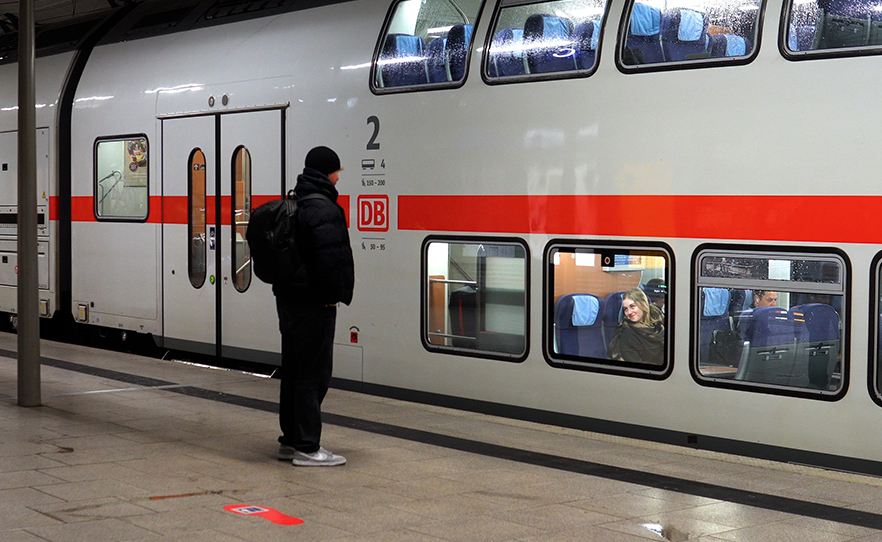A modestly sized cinema that screens a variety of film formats, including video art, often in conjunction with the current exhibition and/or contemporary events. The venue also serves as a platform for performances, readings and discussions.
Currently on view
Transitplaces
From October 7 2025, Tuesday to Sunday, 10 am to 5 pm,Thursday, 10 am to 7 pm

This corpus of three short films focuses on places of transit — those spaces a traveler is compelled to cross in order to move and journey: a train station, an airport, a bus terminal.
These often cold, impersonal spaces can evoke different feelings of solitude and separation. Yet, these places of passage possess a soul; they bear witness to thousands of stories and destinies, sometimes shaped by migration policies and social inequalities. They are a kind of stage where countless lives cross without exchanging a word, and where everyone’s roles are clearly defined according to a certain social hierarchy.
These transit spaces function as a “closed cosmos” (Justus Siebrecht, Porträt eines Bahnhofs), where codes are strictly established and where one can “feel the pulse of the Earth” beating (Camille Briffod, Passagères).
How does one experience such a place? Do we want to linger there? What does it cost us to leave our “home”?
This collection illustrates how travel and movement are perceived and experienced differently by individuals. For some, it is a mundane daily routine; for others, traveling is nearly impossible and demands tremendous effort.
Rootedness and uprooting, encounters and the absence of encounters, separation, freedom of movement or, conversely, confinement — all these aspects are brought to light.
What does it mean to travel? What emotions and realities does it entail?
At a time when taking the bus, the train, or the plane has become almost ordinary, “Transitorte” restores an identity to these places we no longer truly notice: spaces of waiting, consumption, boredom, and in-betweenness — places in which we rarely wish to linger.
Justus Siebrecht, Porträt eines Bahnhofs, 2024
Justus Siebrecht is a student at the Universität der Künste in Berlin. His first film, Porträt eines Bahnhofs, has been selected for numerous festivals (PrevYou Kurzfilm Festival, Festival Detmold, MOV, Monstrale Festival, parkflimmern).
Camille Briffod, Passagères, 2024
Camille Briffod is a director, screenwriter and producer. She works between Switzerland and France and is active within the Sabotage Kollektiv. Passagères was screened in Fribourg, Switzerland, as part of the 39th Fribourg International Film Festival.
Kim Allamand, Terminal, 2019
Kim Allamand is a screenwriter and director based in Zurich and a member of the Sabotage Kollektiv. His film Terminal received the Best Swiss Newcomer Award and the Youth Jury Award at the Locarno Festival, as well as several prizes at the Zinebi Bilbao, Dokufest Prizren, and Winterthur Short Film Festival.


